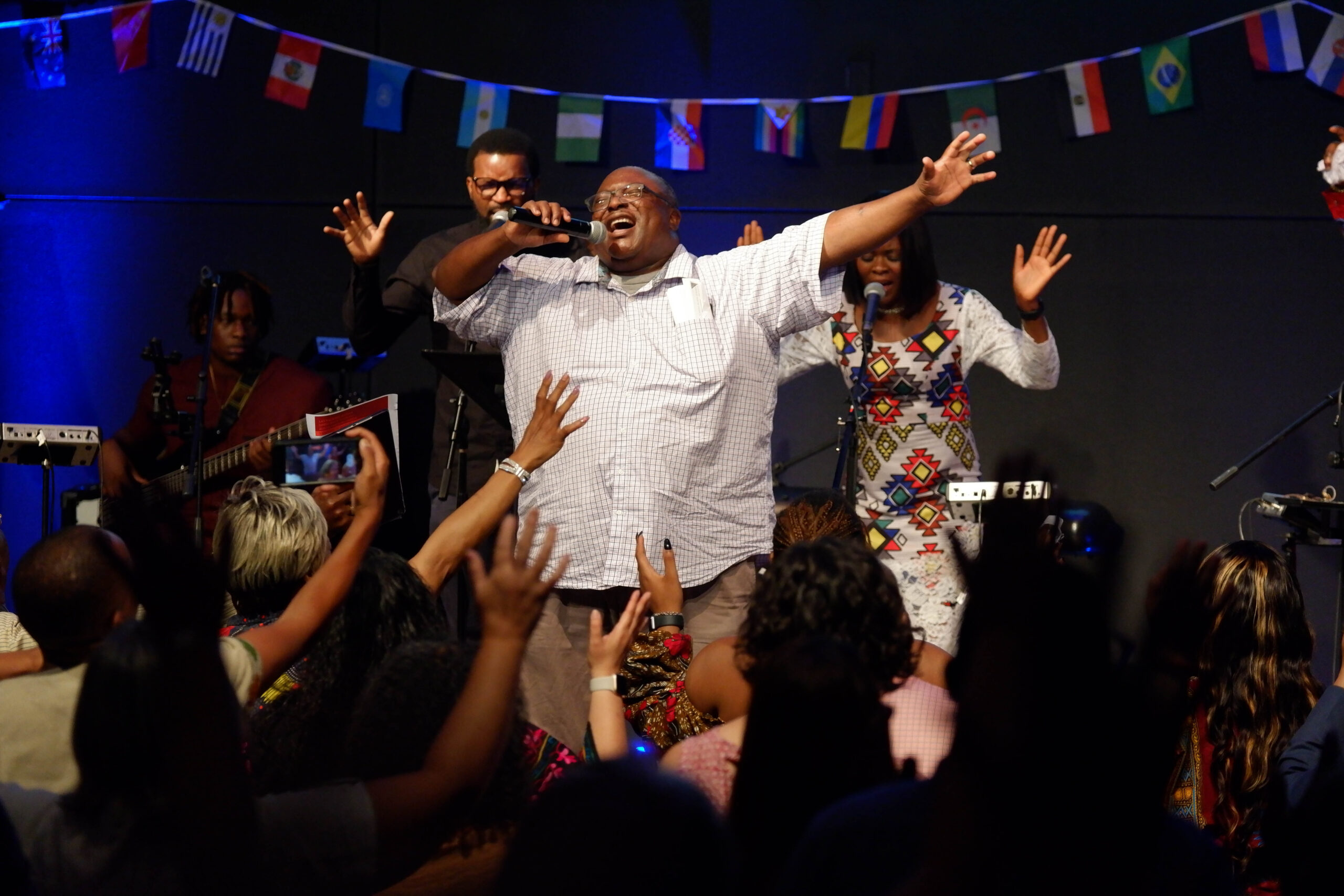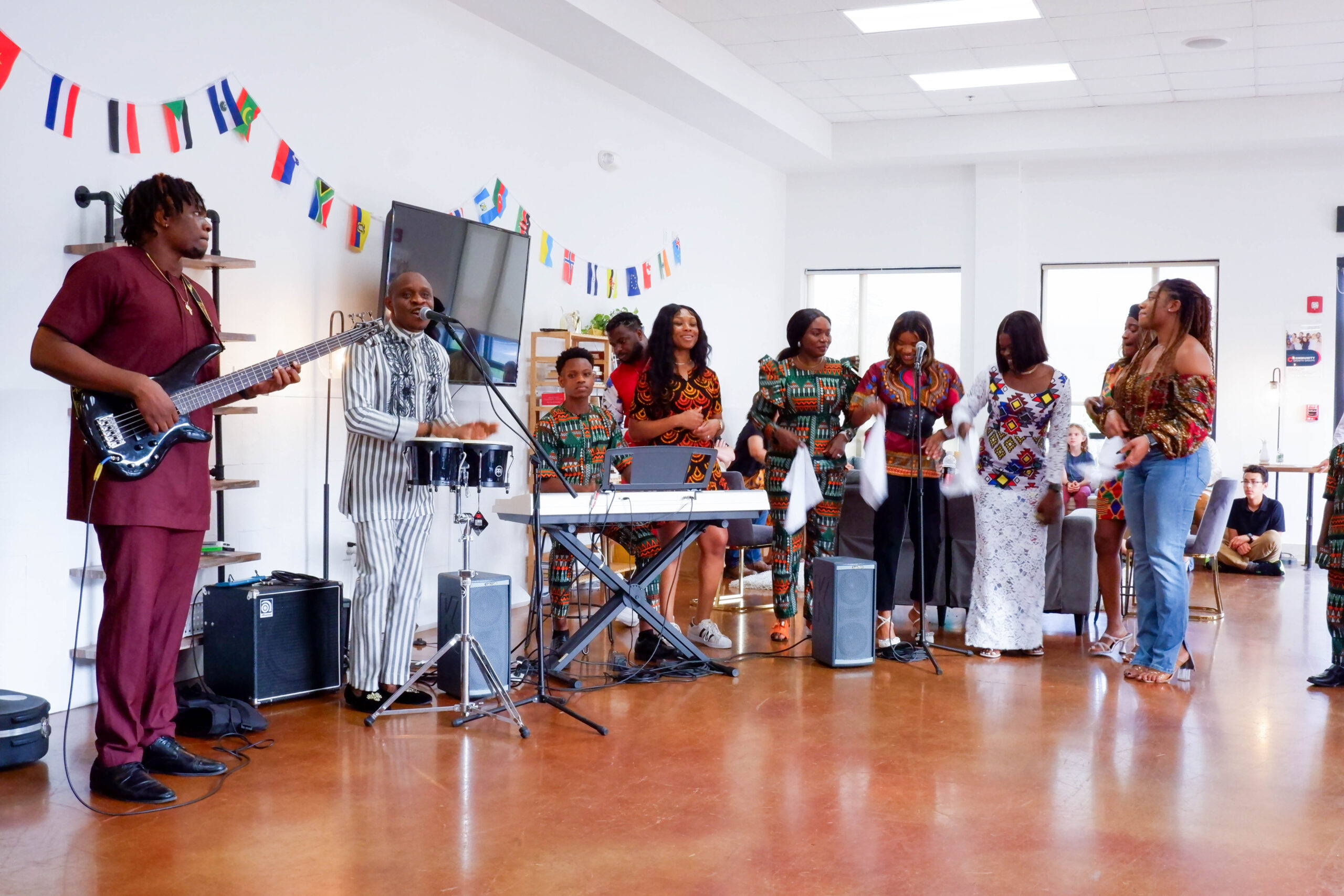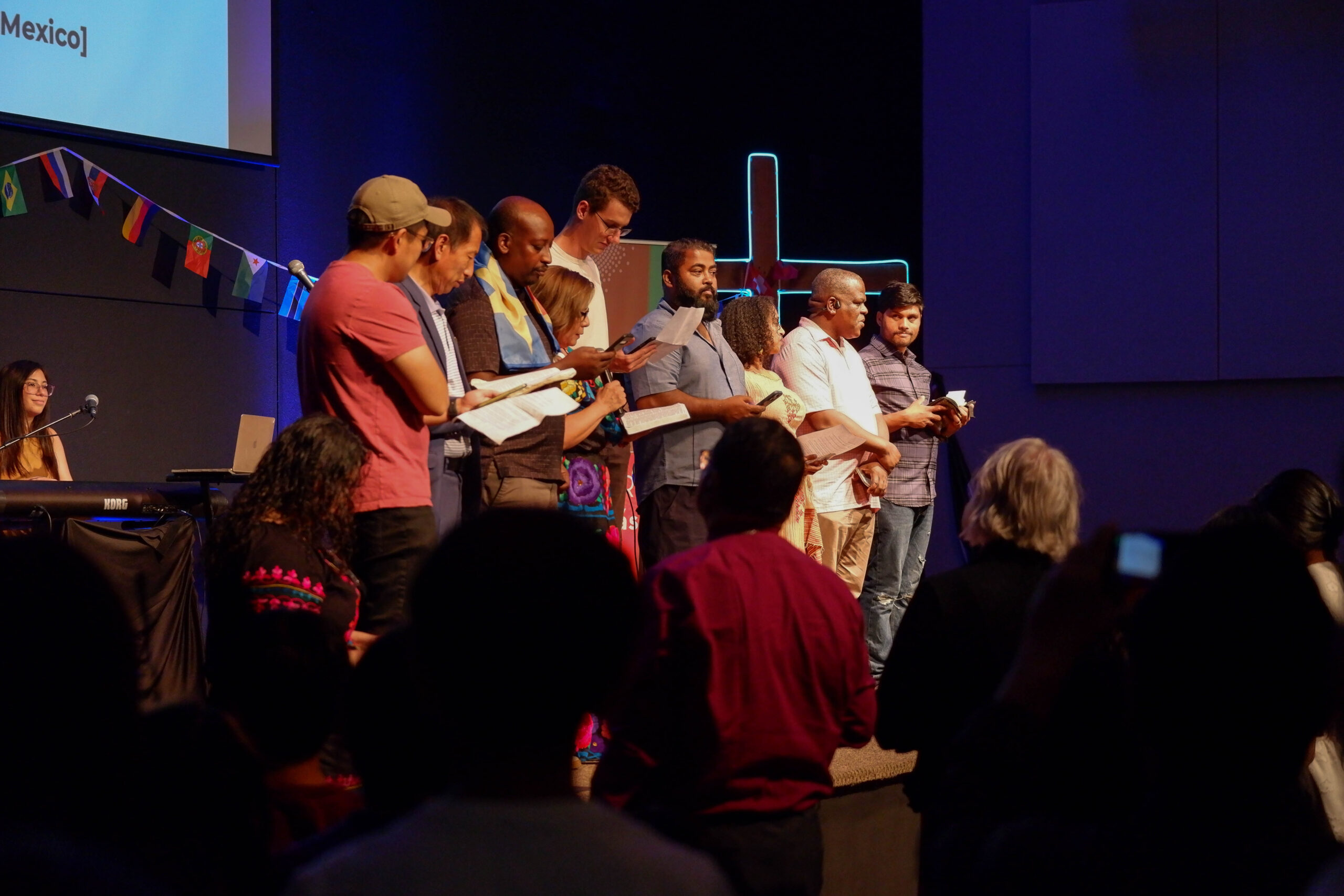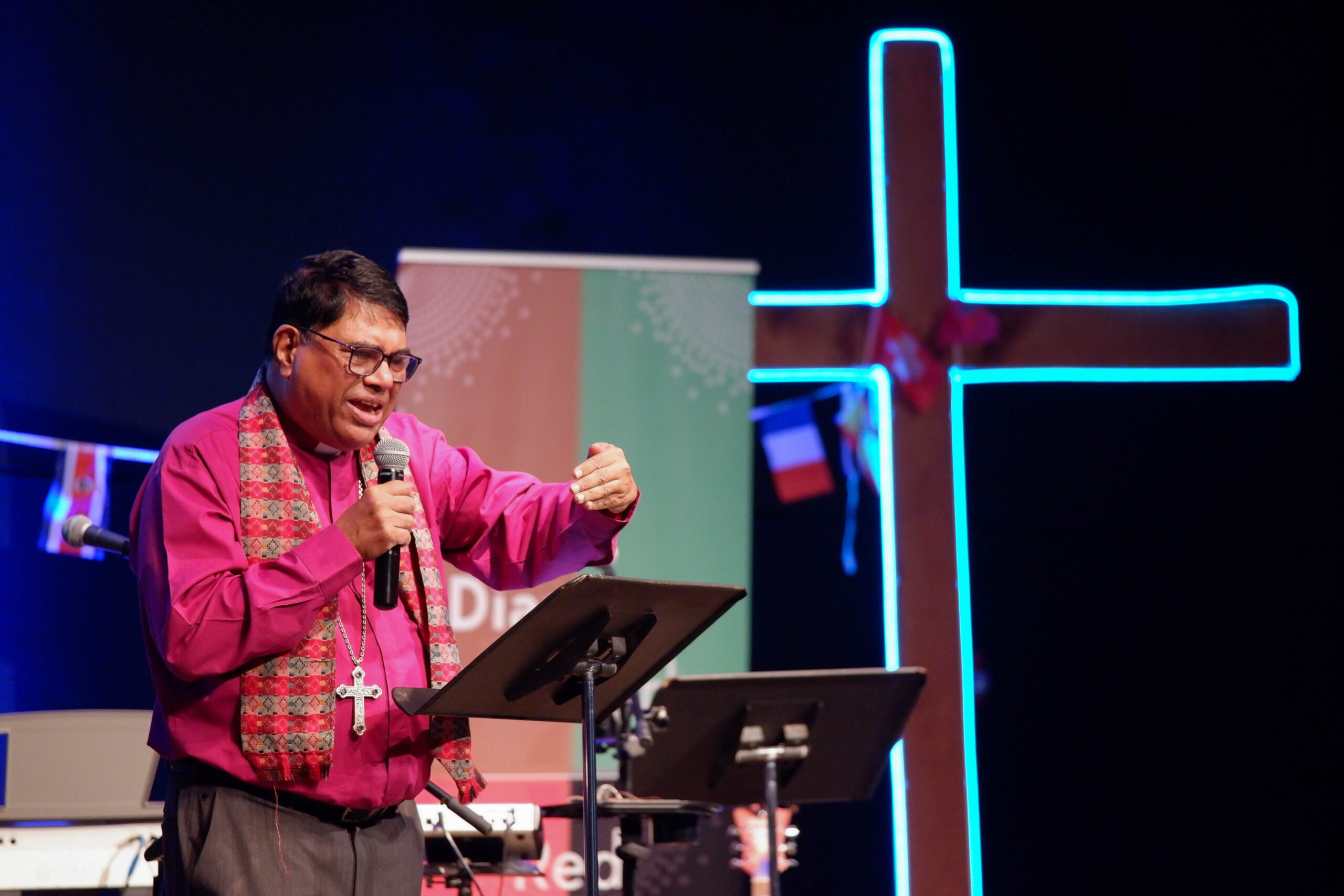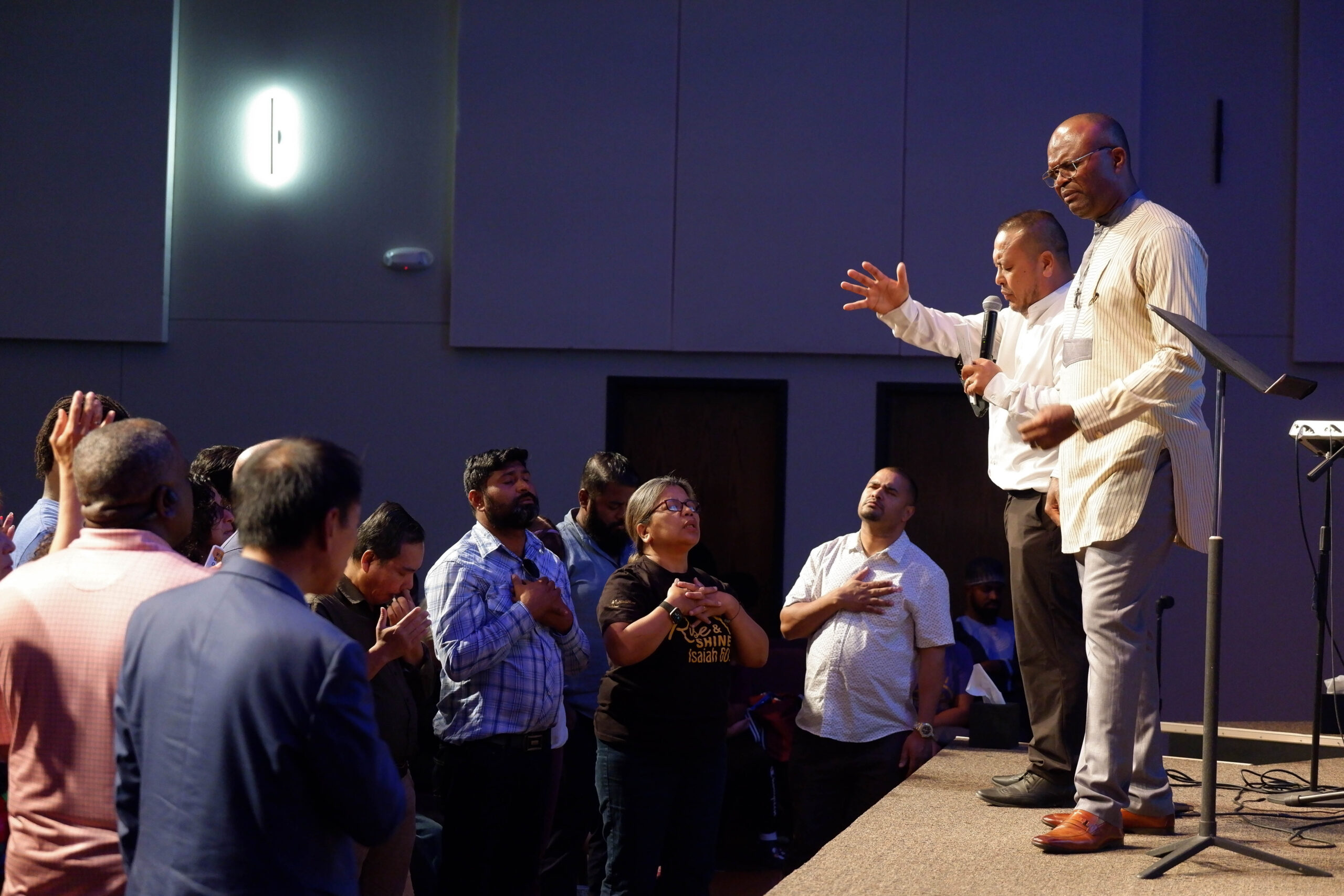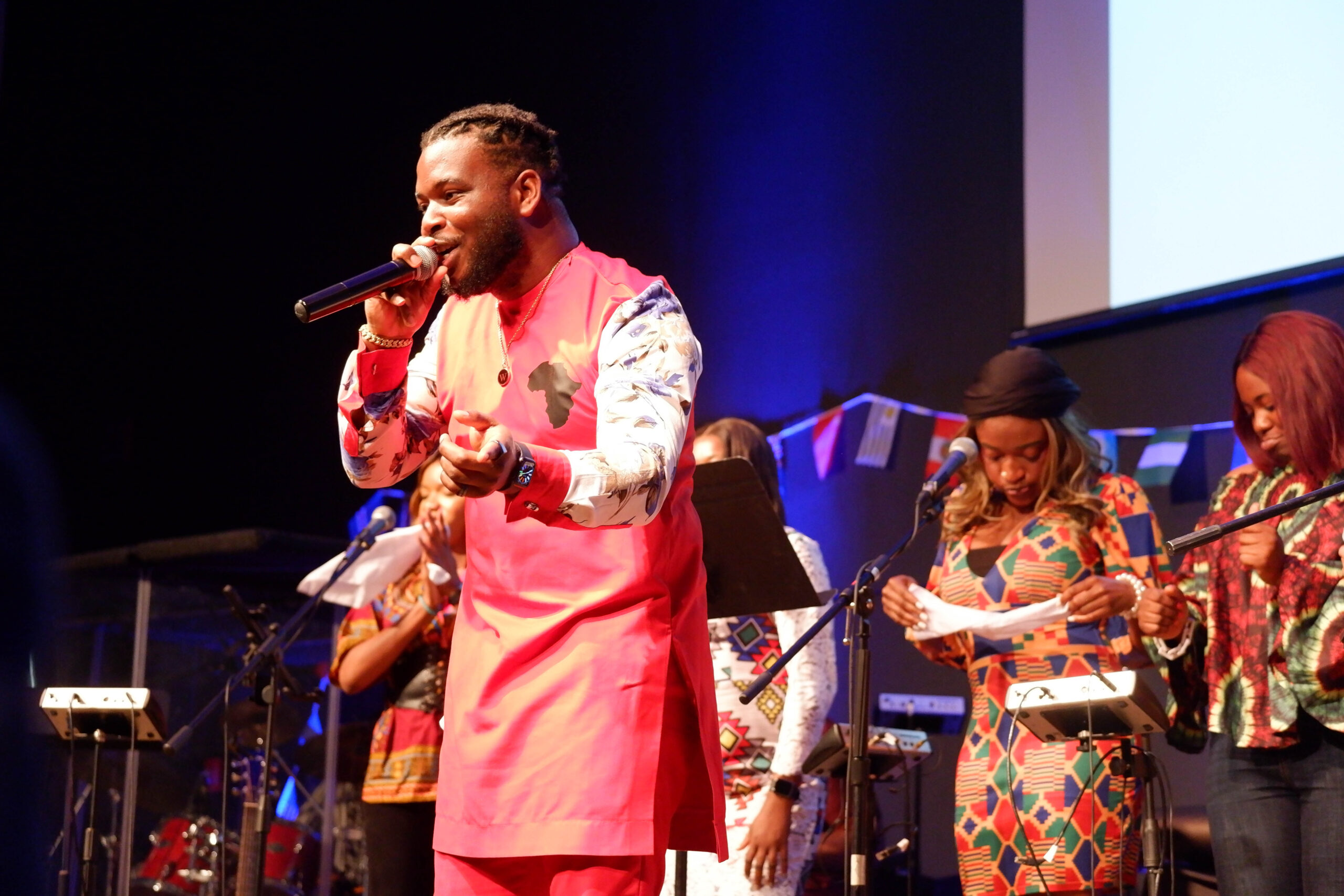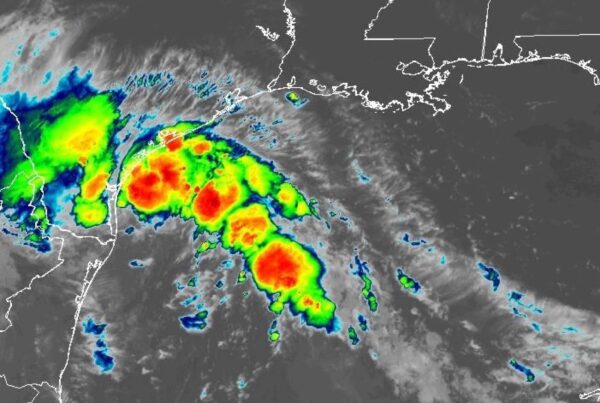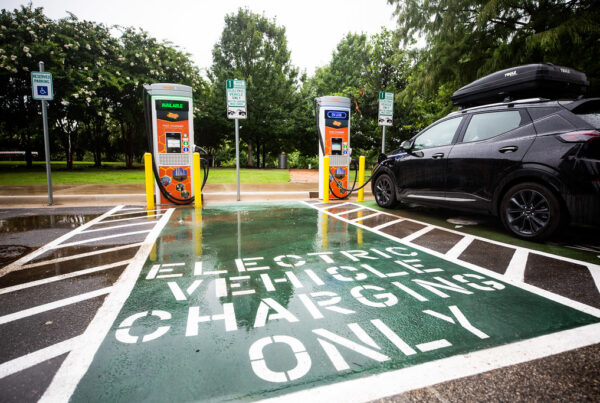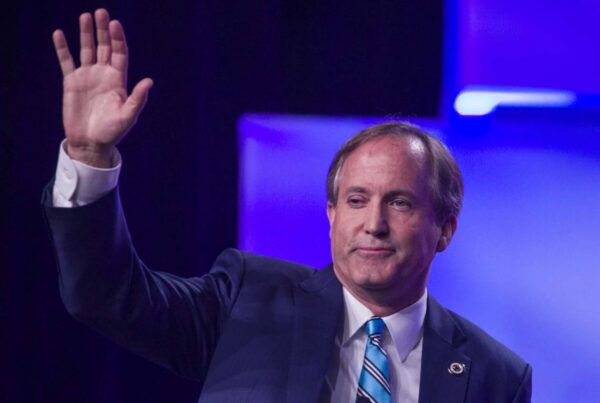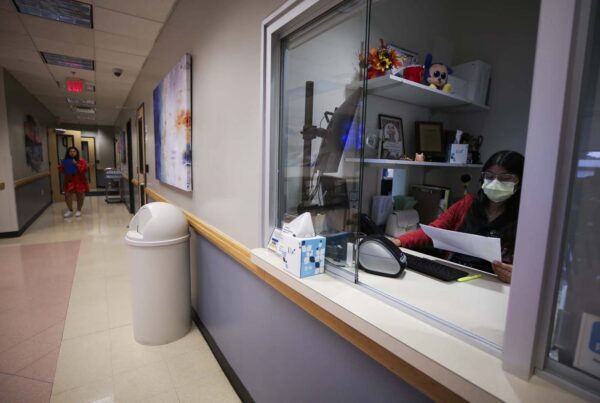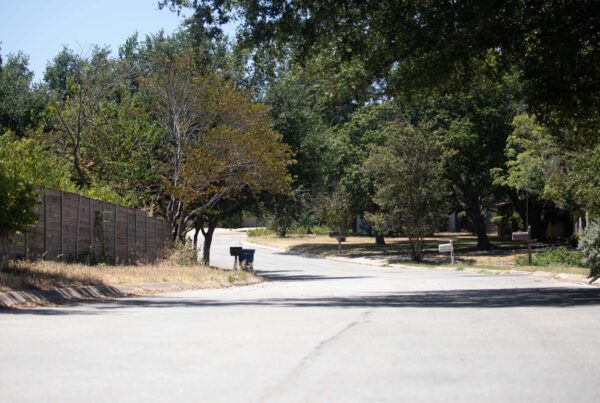It’s no secret that church attendance in the U.S. has been steadily declining for several decades.
Reports on American religious demographics often focus on the decline of Christianity and the rise of the “nones,” or religiously unaffiliated. But, under the radar, immigrant churches with powerful messages and ecstatic worship services are providing spiritual and material support for communities that have resettled in the U.S.
In Austin, an interdenominational group called the Diaspora Network connects and empowers these churches. The capital city is home to more than 150 diaspora churches that worship in at least 30 languages, according to the network.
Austin Vineyard Church doesn’t have a steeple or stained glass depictions of angels and saints. Its beige aluminum siding looks more like a warehouse than a place of worship. But as soon as I entered the building on a Friday night in late July, there was no mistaking where I was.


